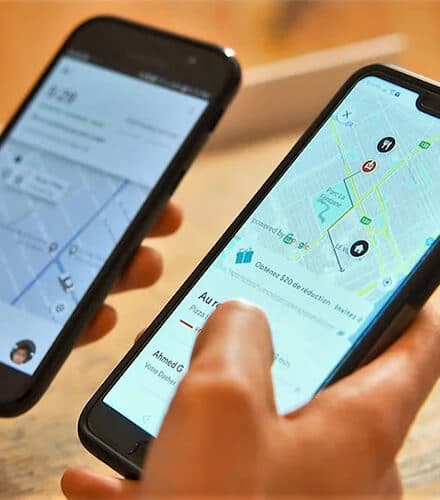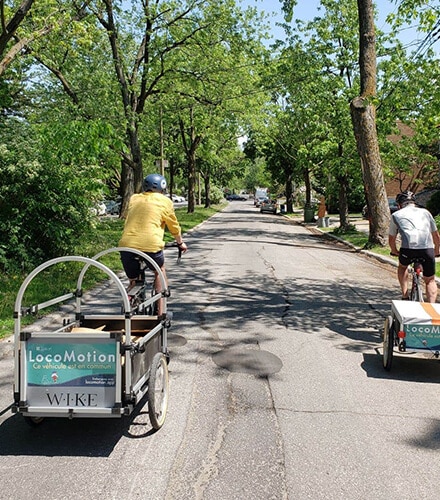
Understand the movement of people and merchandise to make the right decisions. Data
Whether qualitative or quantitative, data is information about facts. The challenge is to collect relevant data to understand a situation: to understand behaviors, flows, project progression, action results, etc.
It is therefore a decision-making tool and a support for action.

Our approach is incremental:
All while respecting best practices in terms of ethics and governance, as specified, for example, in the City of Montreal’s digital data charter.
Coop Carbone is the founding member of the Fabrique des Mobilités Québec and relies on this NPO to de-risk data access and interoperability.
The Fabrique des Mobilités Québec’s mission is to accompany the stakeholders of the mobility ecosystem to take ownership of the technology commons and open data in mobility to achieve their objectives of accessibility, decarbonation, improvement of policies and mobility services.
Whether it is to have a better understanding of user behavior or to implement a new solution, the open data in mobility team is there to support the projects of shared mobility.
Understanding flows and business relationships in the urban logistics field are at the heart of the experimentations conducted by MOBIS.
Based on the mobility data platform, set up within the framework of Montreal in Common with Jalon MTL, MOBIS intends to facilitate, and even assist, the structuring of an open mobility data center throughout Quebec in order to urge the ecosystem’s players to better share and use open data.

MOBIS is involved in several mobility projects in partnership with Fabrique des Mobilités Québec.
This project, conducted in partnership with the Fabrique des Mobilités Québec (and with the support of Fonds d’initiative et de rayonnement de la métropole (FIRM)), aims to identify the most appropriate methodological tools to understand the new mobility behaviours of Montrealers. Through this project, we seek to understand the impacts of telecommuting on mobility, mainly by measuring the rebound effect, the impacts of e-commerce and to draw up a mobility portrait of populations in poverty situations and social exclusion.
As part of Montreal in Common, Fabrique des Mobilités Québec examines the needs and uses of curbspace, the portion of public space between the roadway and the sidewalk that is mainly devoted to parking. Trip planning, shared mobility, dynamic management of deliveries, are all subjects that concern new ways of sharing public space for improved urban mobility.
Carpooling covers an essential mobility need in non-dense areas or for long distances. Understanding the motivations behind incentives (financial or parking) and improving the visibility of the offer are the two avenues of work explored with the Fabrique des Mobilités Québec within the framework of Montréal in Common and could lead to medium-term scaling.
Here are the other programs in sustainable mobility developed by the Mobis sector.